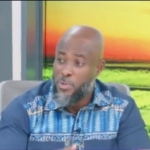
Former Director of External Affairs of the New Patriotic Party (NPP), Kofi Ameyaw, has expressed his opposition to the use of local languages as a medium of instruction in basic schools, citing his personal experience and concerns about practicality.
Recounting his early years in education, Mr. Ameyaw revealed that language barriers affected his academic development.
“At the age of nine, I couldn’t translate Twi into English,” he recalled — a challenge that, according to him, greatly influenced his perspective on the role of language in learning.
Based on that experience, Mr. Ameyaw said he does not support the policy of teaching in local languages at the basic level.
“I don’t agree with the use of local languages to teach at the basic level,” he emphasized.
While acknowledging research that highlights the cultural benefits of using indigenous languages in education, he maintained that it is not a policy he would personally endorse.
“Yes, research shows that it helps children identify with our culture and heritage,” he admitted, “but it’s a policy I will not advocate for.”
He further argued that since Ghana already has a widely understood common language, it would be more effective to strengthen that system rather than promote multiple local languages.
“I believe that once we have a standardized language, why don’t we use it?” he questioned.
Comparing Ghana’s situation to that of the Philippines, Mr. Ameyaw noted, “I understand the Philippines uses about nineteen languages in teaching. They have the system — but do we? Do we have the logistics to meet this particular policy?”
Through his remarks, Mr. Ameyaw underscored the need for practical considerations before implementing multilingual education policies, cautioning that without adequate resources and infrastructure, such initiatives may face significant challenges.